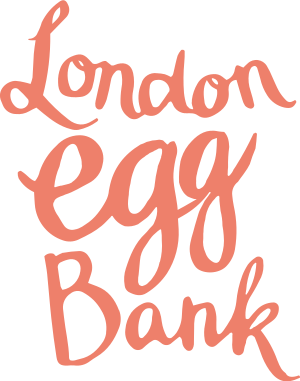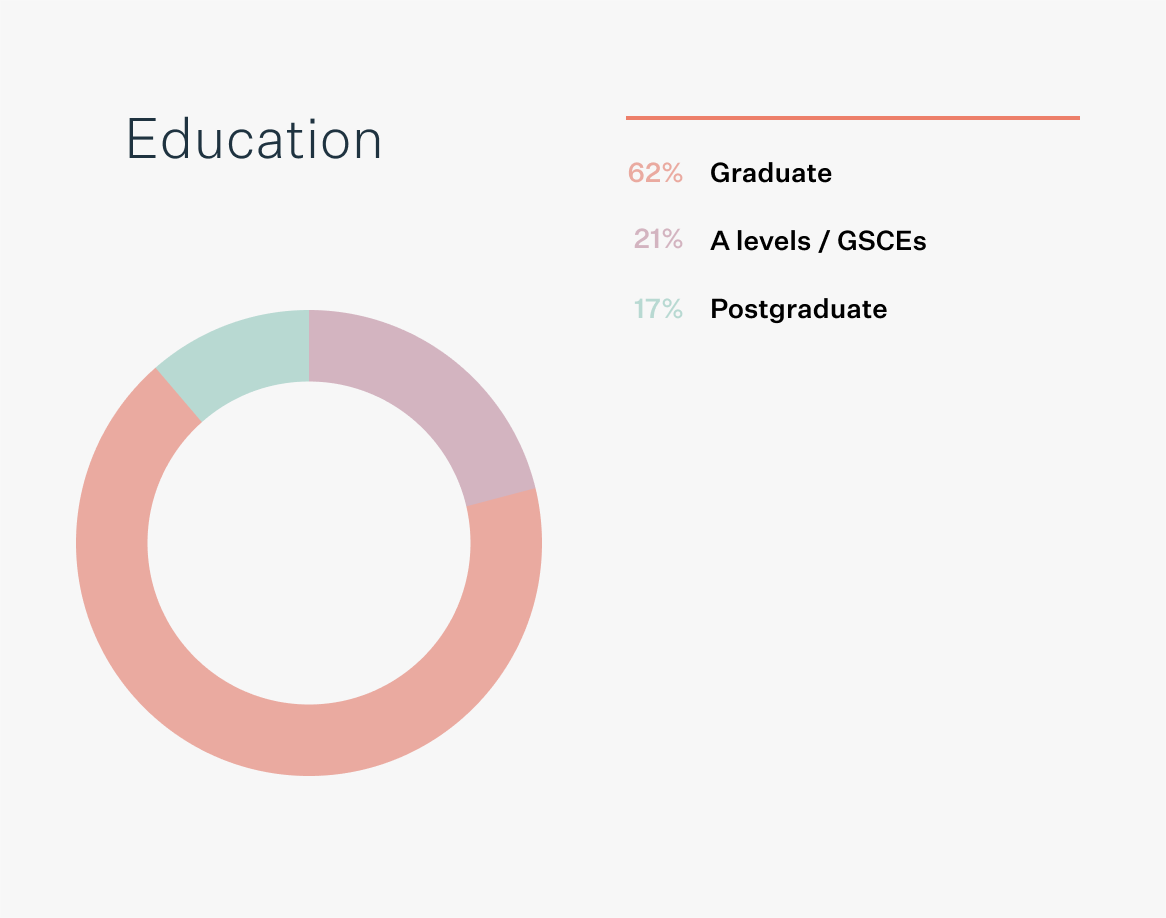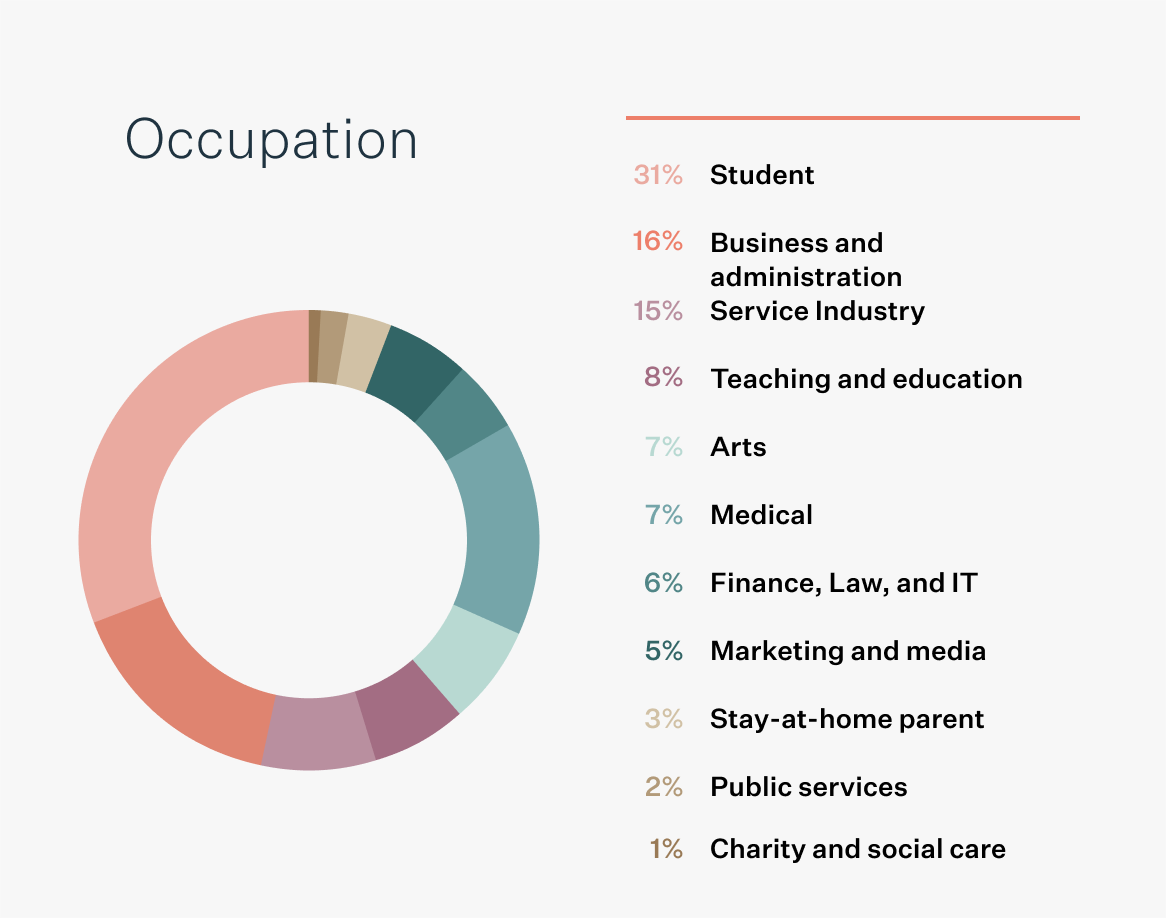We understand that finding the right egg donor is often the most difficult part of conceiving with donor eggs. We want to make this process as straightforward and supported as possible, by providing you with access to the largest selection of frozen donor eggs in the UK.
Our online donor database consists of egg donors who passed our rigorous screening process and we have their eggs banked in our secure storage facilities and ready to use. Unlike some other clinics or agencies, we don’t include women who have not yet been screened for donation, or where their eggs have not yet been donated.
Our donors are smart, altruistic women from all walks of life, who share a willingness to help people who otherwise can’t build a family of their own.
Who are our donors?
Our egg donors are recruited from within the UK, and they have all donated eggs after passing our rigorous screening process in line with HFEA standards
From these summaries of education, occupation and motivation you’ll see that our donors want to make a real difference to people’s lives, and we make sure they are happy in their decision as we support them through the donation process and beyond.
Donor Screening
We recruit donors who live in the UK. Our rigorous screening process ensures that our donors meet the Human Fertilisation and Embryology Authority (HFEA) standards. Our donors must also pass extensive medical, genetic and psychological assessments.
We treat all our donors as individuals and offer a high level of care in recognition of their remarkable kindness. But if we look collectively at the wonderful group of women who have donated eggs to our database, we can tell you some of their common characteristics.
Donor Statistics
79% of our donors are educated to degree level or above, come from a wide range of backgrounds and ethnicities, and the main motivation they give us for donating their eggs is their wish to help others, for a variety of different reasons.
WHAT MAKES US DIFFERENT?
Our donor screening process is unique
The London Egg Bank is the only egg bank in the United Kingdom with a singular focus on egg quality and vitrification. As we don’t run a multi-service infertility practice, we’re able to focus on the one thing we do best.
Proven expertise
We maintain quality control by centralizing egg donation for all our centres. We use the same clinical and laboratory protocols developed through years of experience with frozen donor cycles. Our stimulation protocols, vitrification technique, shipping system, and all related technical and operational systems are monitored and continually improved.
Unique Structure
We specialise in stimulation protocols to obtain the best quality eggs, and in the laboratory techniques to support the vitrification of frozen eggs. All donor stimulations, retrievals, and egg vitrification are done with our proven protocols at only two laboratories, ensuring we meet our stringent quality standards at all times.
Exacting standards
Our team of recruiters, doctors and geneticists review each donor’s individual and family health history alongside results of medical tests to ensure that every donor meets our highly selective physical criteria. Applicants also undergo psychological screening by one of our in-house counsellors, to assess their mental wellness and ensure commitment to donation. Only women who pass our screening program go on to donate their eggs.
How does it work?
The Egg Donation Process
Donors must fulfil all of the following requirements to become part of the donor programme:
- Between 18-35 years of age
- Be in good general health (non-smokers with a BMI between 18 and 28)
- Have no personal or family history of a significant inheritable condition
- Be free from infectious disease
- Have measurements of ovarian reserve (an indication of egg supply) within the normal range
- Have both ovaries intact
- Have no history of severe endometriosis
Potential donors that are known to have a significant inheritable disease that could result in an offspring developing a serious physical, mental disability, a serious illness or other serious medical conditions are excluded from the programme.
Donors attend the London Egg Bank for a face-to-face interview with one of our dedicated recruiters. We talk about donors’ motivation, understanding and commitment to the egg donation programme. Donors must be able to provide a copy of their photographic identification, and agree for their GP to be contacted.
Donors that are accepted onto the programme are booked into a consultation with one of our fertility specialists. A pelvic ultrasound scan and Anti-Müllerian hormone (AMH) blood test detect any problems in the uterus, ovaries and pelvic region and assess ovarian functionality.
Following the scan, the specialist carries out a detailed review of medical and psychological findings and discusses eligibility for the program, the risks and implications of donating eggs, how the process works, and the ultrasound and blood results.
Donors complete the mandatory HFEA consent forms and are sent for rest of the screening tests.
All egg donors are screened for the following:
- HIV
- Hepatitis B and C
- AMH
- Chlamydia
- Gonorrhoea
- Trichomoniasis
- CMV
- HTLV
- Cystic fibrosis
- Sickle cell
- Syphilis
- Thalassaemia
- Tay-Sachs (if applicable)
- Fragile X (if applicable)
- SMA (if applicable)
- Blood group and rhesus factor
All donors are required to meet with one of our counsellors before progressing with egg donation. This gives our donors an emotionally safe place to explore what donation involves and the lasting implications for them and those they are close to.
We also offer all donors the option to join our Donor Welfare Programme, which offers a comprehensive package of medical and emotional support long after donation is complete.
Find Your Donor
We can help you find your perfect match from our large choice of UK-recruited egg donors. Our smart, altruistic donors come from a diverse range of backgrounds.




